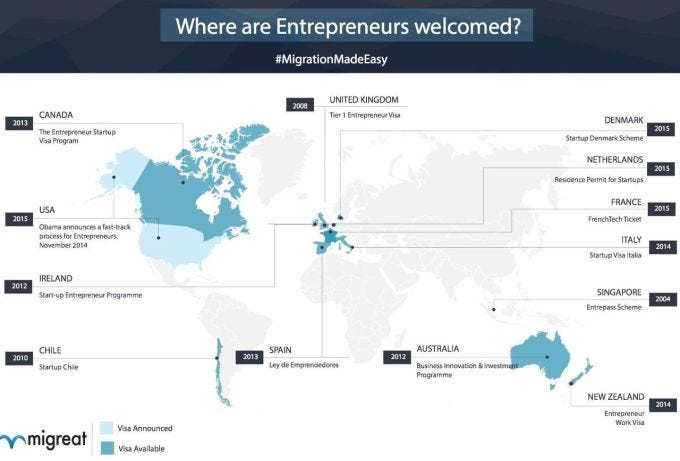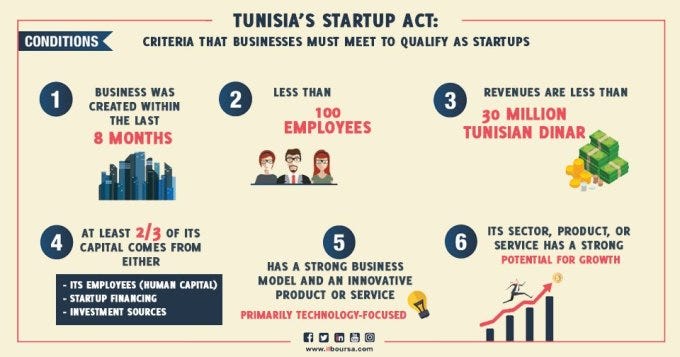The Senegalese government has given startups in the country the green light to excel. The country has become the second African country after Tunisia to pass a dedicated Startup Act after 90 per cent of parliamentarians voted in its favour recently.What this means is that startups in the West African country may most likely now have access to startup funds that will help them raise the funds they need.

Here Is All You Need To Know
- The Senegal Startup Act — tagged bill number 17/2019 — among other things, seeks to promote innovation in the country’s economy towards achieving the country’s “Digital Senegal 2025” strategy.
- Seizing the momentum and capitalizing on support from relevant public institutions, in July 2018 key ecosystem players in Senegal including start-ups, hubs, and investors launched a Policy Hackathon115 to draft in a participatory, bottom-updriven manner a Senegal Start-up Act, which covers areas, such as financing mechanisms, fiscality, access to digital infrastructure, skills and training opportunities, tax policies, or labeling of start-ups, the promotion of data collection and sharing so that entrepreneurs can develop better business plans.
- The draft was submitted to the authorities, who are strongly committed to follow the examples of other economies, notably Israel (1991), United States (2011), France (2013), India (2016), and Tunisia (2018), in adopting specific start-up focused regulations.
- President Macky Sall’s Council of Ministers early November, 2019 considered and adopted the bill, and it has now been approved the the country’s National Assembly.
- This move now makes Senegal the second African country to pass a Startup Act, after Tunisia.
“I think that in a few years the question will be, “how many countries don’t have Startup Acts?”,” Jon Stever, co-founder and managing director of Impact Hub Kigali and catalyst at i4Policy said. “This year, Smart Africa’s board, comprising 26 African heads of state, requested the Tunisian government to package and share learnings from their Startup Act. Moreover, the work of i4Policy signatories to support policy reforms is multiplying, as are our resources to support the work.”
- The Senegalese start-up ecosystem remains fragile and embryonic and its further development is inhibited by several critical constraints, particularly by insufficient support at the regulatory level.
- Despite important incipient progress, Senegal still ranks 140th of 190 economies in Doing Business 2018 and 103rd of 137 countries in the 2018 Global Entrepreneurship Index, suggesting that deeper reforms and additional investments are warranted to fully transform the country’s business environment and entrepreneurship ecosystem.
- Specific measures are necessary to support start-ups that face significant and, in many ways, unique challenges that limit scale-up opportunities. These challenges include high initial investments, long development periods to break even, the necessity to protect intellectual property, insufficient material assets, impediments to access finance, and weak access to markets.

Senegal ’s Startup Act Looks Similar Compared to the Tunisian Startup Act.
Unarguably, Tunisia leads other African countries in bold startup legislations. The Tunisian Startup Act, passed in May, 2018, also reveals the following similarities with the Malian Startup Act.
Also Read: South African Real Estate Startups Shock Other African Startups With This New Move
- Tunisian Startup Act defines startups as an entity having legal existence not exceeding eight (08) years from the date of its constitution,while Mali’s makes provision only for startups less than four years.
- More than two-thirds (2/3) of Tunisian startups’ capital must be natural persons, venture capital investment companies, collective investment funds, investment, seed money and any other investment body according to the legislation in force or by foreign Startups to qualify as startups under the Act.
- The business model envisaged by the Tunisian Startup Act is one that is highly innovative, utilizing cutting-edge technology.
- Under the Act, any individual promoter of a Startup, public agent or employee of a private company, may benefit from the right to Startup Leave for creation of a Startup for a period of one year renewable once
- Any promoter of a Startup may benefit from a Startup scholarship for a duration of one (01) year. Only three (03) shareholders and full-time employees in the relevant Startup may however benefit from the scholarship awarded.
- Young graduates who create startups are free from taxation for three years.
- The profits from the sale of the securities relating to the shares in the Startups are exempt from the capital gains tax.

The Era of Startup Act
The first specific startup law globally was passed in Italy in 2012, and Africa is increasingly catching on. A host of countries, with Mali also at an advanced stage, are working towards Startup Acts.
Charles Rapulu Udoh

Charles Rapulu Udoh is a Lagos-based Lawyer with special focus on Business Law, Intellectual Property Rights, Entertainment and Technology Law. He is also an award-winning writer. Working for notable organizations so far has exposed him to some of industry best practices in business, finance strategies, law, dispute resolution, and data analytics both in Nigeria and across the world
